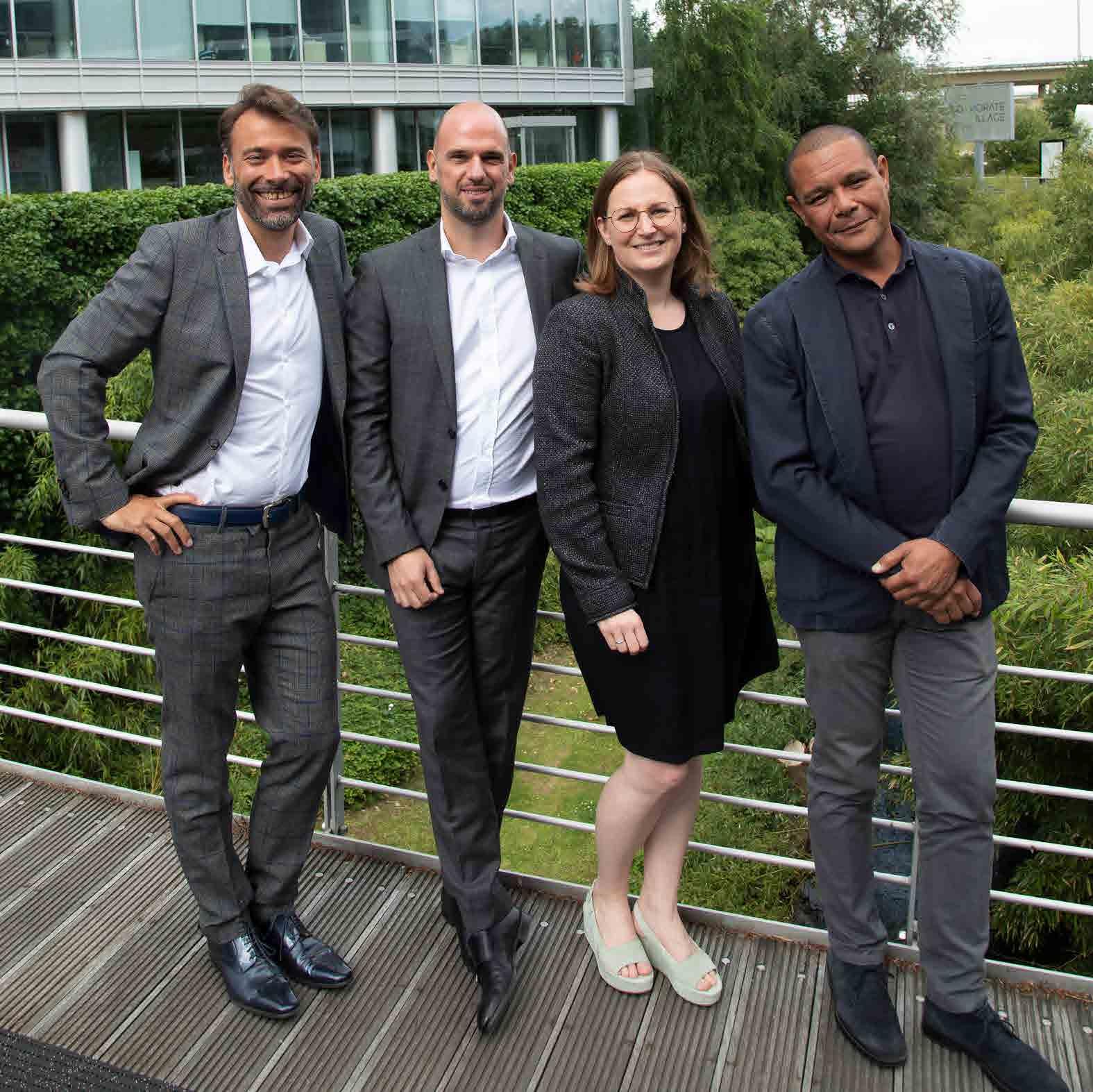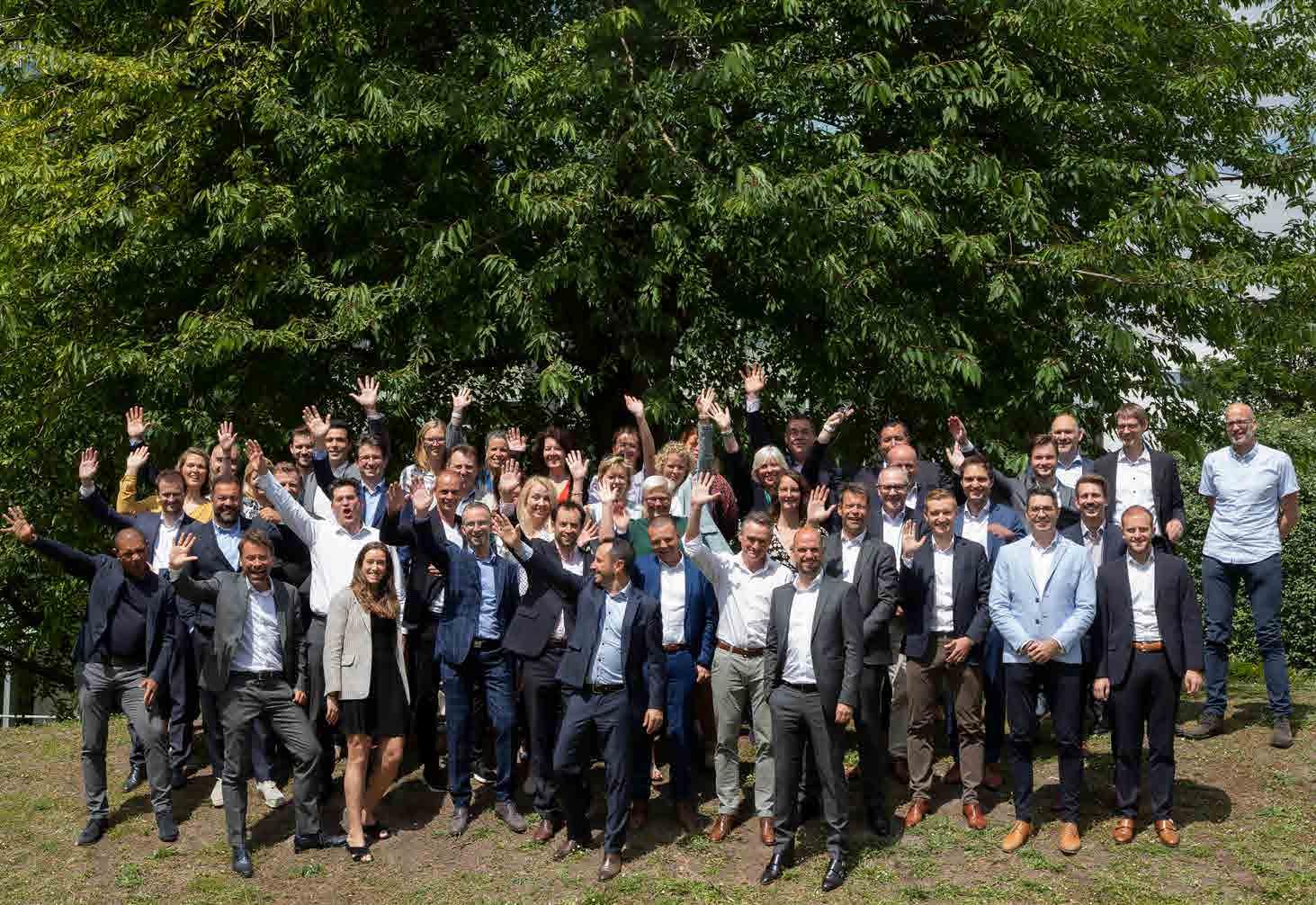
7 minute read
KNOWLEDGE IS THE BEST THING YOU CAN INVEST IN
THERE’S NEVER BEEN A BETTER TIME TO QUESTION THE STATUS QUO – FOR CIOS AS MUCH AS FOR AN ORGANIZATION LIKE GARTNER. BUT YOU CAN’T DO THIS WITHOUT THE RIGHT TEAM, WITH THE RIGHT DEGREE OF DIVERSITY ABLE TO APPRECIATE THE FULL SCALE OF THE CHALLENGES YOU FACE. EXECUTIVE PEOPLE SPOKE TO EMMANUEL BINARD ABOUT TRENDS AND THE IMPORTANCE OF INNOVATIVE TEAMS.
By: Marco van der Hoeven
There’s never been a better time to question the status quo – for CIOs as much as for an organization like Gartner. But you can’t do this without the right team, with the right degree of diversity able to appreciate the full scale of the challenges you face. Executive People spoke to Emmanuel Binard about trends and the importance of innovative teams. The overarching theme at year’s Gartner ITSymposium is: meet the moment, make the difference. The underlying vision is that CIOs are strategic leaders in times of disruption and in times of growth. We have never seen so much disruption and change occur so quickly as we have over the last few decades. And what’s more, there’s a conflict in Europe at a level we haven’t seen for half a century. On the economic front, interest rates are now rising, meaning that money is now going to cost money again. Inflation is back, so a whole new leadership paradigm is emerging. This level of disruption marks a shift toward a much more multipolar world, where CIOs are the leaders, facing unprecedented challenges. Within the theme of ‘meet the moment, make the difference’, Gartner wants to help IT leaders justify the choices they have to make. There are a great deal of trends, but CIOs and IT managers need to look at all the trends that matter to them and then leverage them for their own organization.
MEETING FACE TO FACE AGAIN
“This all comes into play in a post-pandemic world, as we are seeing people meeting in person again,” explains Emmanuel Binard, Regional Vice President for Belgium & Luxembourg at Gartner. “With ITSymposium, we believe we’re fulfilling that need by discussing this disruption in a safe environment. And we know that because we’re already seeing a huge increase in the number of sign-ups. It even looks like we can host more people than the last time we organized ITSymposium in 2019. We are really excited about the opportunity we can offer CIOs to come together and share knowledge.” “Taking four days out to dive deep into the question of what technology can mean for your business will prove a valuable investment. I think we’re now without a doubt in a time when CIOs can suggest ideas to help break the status quo – not least because of the pandemic, when we found out how important it was to be ready for far-reaching digitization.” According to Binard, the CIO’s role now is radically different from previous decades. “Previously, the CIO’s chief task was to save costs. IT was especially seen as a cost item; it was never enough, or delivered on time, or fast enough, and so on. Now that IT is truly strategic, especially at times of disruption, inflation, and war, it’s more important than ever for the CIO to come up with sound advice for the board. That makes a visit to Barcelona more than worth it for CIOs.”
SECURITY AS AN INVESTMENT
Binard points to security as an example. “We know that 80% of board members believe that cybersecurity is an issue for the business. Now we’ve designed a form of benchmarking that helps translate a technical security issue into a real business impact: It’s like patching the system that, in turn, protects the systems that actually support to the business process. The choice between the level of investment versus the level of protection is actually a financial decision.” “We’re seeing more and more that we can translate things that were previously very technical into a business impact. That makes the discussion about this technology highly relevant to a lot of
GARTNER SALES MANAGEMENT
executives, so they can make informed decisions. And while I’ve used security as an example, you see it in many other areas, such as data, artificial intelligence integration, and how people select their talent.”
THE GREAT REFLECTION
This ties in with the much-discussed topic of the great resignation. “Our analysts don’t actually use the term the great resignation, even though that’s how it appears at first glance. Figures show that a few million Americans are quitting every month. So, it does makes sense to call it the great resignation. But at Gartner, we prefer to talk about the great reflection. This symbolizes the fact that many employees are seriously thinking about how they work for a company. In fact, they are re-calibrating their personal value and what it means, so they can determine if they want to work for someone.” “At the moment, no fewer than 65% of employees say they are rethinking the relationship between their work and their personal lives. The manager you have is becoming more relevant than salary, for example. Research shows that the factor that has

THE GARTNER BELUX TEAM
evolved the most for employee retention is the manager, so companies need to make sure they have good managers who keep their people engaged, inspired, and valued.”
DIVERSITY
“In this very competitive market, every candidate who accepts a job offer at a company has already had two other offers. This pushes companies to hire new types of profiles from all over the globe. For example, I know a bank that predominantly sourced his data scientist outside Belgium, they had even to go to Brasil to find the talents they need. And thos kind of trends resonate everywhere, even at Gartner. Eleven nationalities are represented on our sales team. This makes us stronger, and an ideal partner in the capital of Europe.” “That diversity is of course very useful in challenging the status quo and an absolute must for changing the existing mentality in an organization. More and more CIOs are talking about this. The challenges that they face are extraordinarily complex, and so too are the decisions they need to make. If they can look at all the stages of a decision with greater diversity, they will have a different perspective of a problem. This allows you to frame the problem at a different level and tackle it more effectively. In short, diversity really is helping us solve problems.”
RESULTS
“If you just have the same type of people, are you really going to change the way you approach the traditional relationship with the business as a CIO? No, you need all kinds of people to challenge the status quo within teams. The person who reinvented the car was not an engineer; the person who is going to reinvent medicines won’t be a doctor. You need a different angle to change the way you look at things. So, diversity has a very tangible result.” Gartner services have also evolved over the years along with these trends. “We have reviewed our services and introduced rolebased models. So, instead of giving generic advice, we try to put ourselves in the shoes of executives. Take the example of a Chief Information Security Officer (CISO). We have developed a priority navigator that shows them how CISOs can organize their time into different sectors. On that basis, they can then determine their own priorities. Those models include everything relevant to their role.”
According to Binard, Gartner will continue to develop and guide the customer journey. “That is a continuous evolution that I strongly believe in, because the more we take that path, the more we at Gartner are able to deliver tangible results consistently for the customer. My ambition is to generate €10 in value for every euro invested in our services. And to achieve this, we need to be live and breathe the day-to-day lives of our customers and the different dimensions of their work. Coming back to my example with the CISO, it’s about the leadership, business, and technology dimensions of their role. These role-based models will generate a great deal of value for customers. And it all starts by looking at things from the customer's perspective.”
7 – 10 November 2022 | Barcelona, Spain gartner.com/eu/symposium
The World’s Most Important Gathering of CIOs and IT Executives™
Guiding CIOs and IT executives to accelerate digital business

Join us for the technology, insights and trends shaping the future of IT and business
Hot topics
• Architecture, platforms and software engineering • Data, analytics and AI • Cloud, infrastructure and operations • Customer and citizen experience • Cybersecurity and risk management • Sustainable business and ESG • Digital business acceleration • Executive leadership • IT investment and value • The future of work • Innovation and disruption • Operational models • Strategic planning and execution • Talent, culture and change








